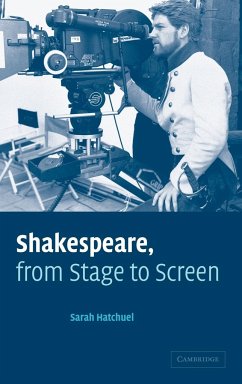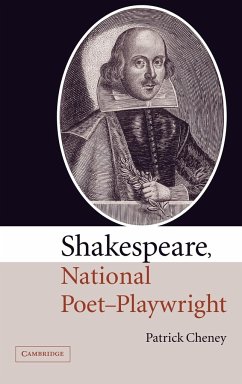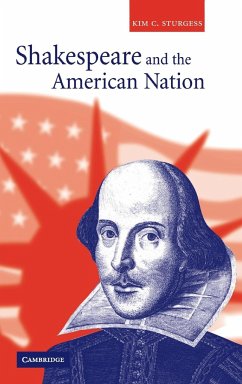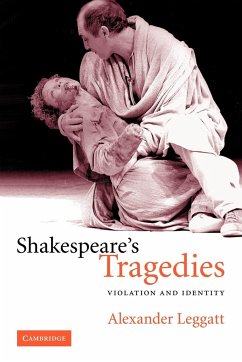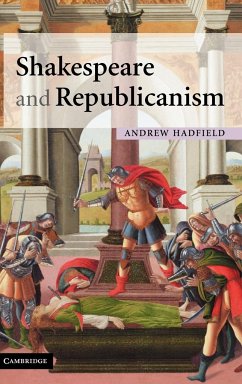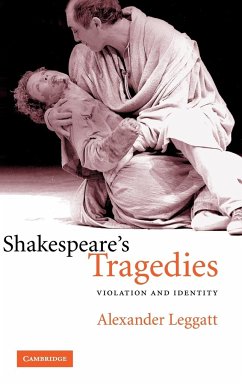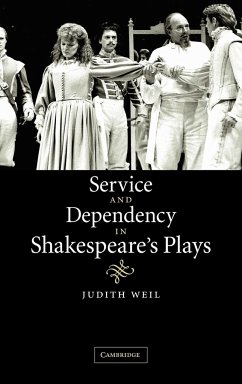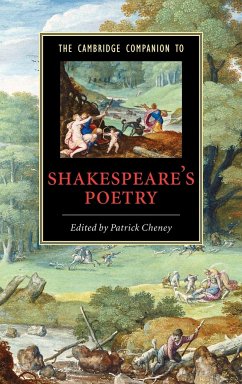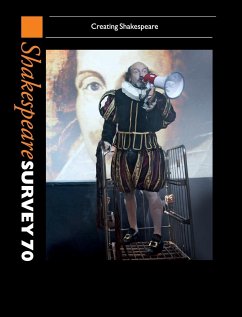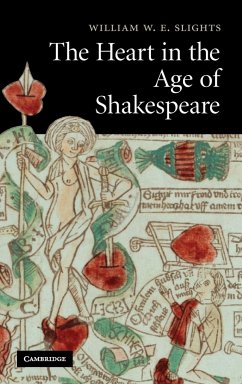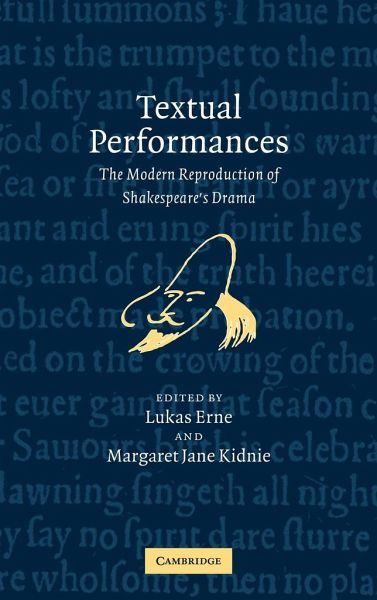
Textual Performances
The Modern Reproduction of Shakespeare's Drama
Herausgeber: Erne, Lukas; Kidnie, Margaret Jane

PAYBACK Punkte
55 °P sammeln!
Brings together leading scholars to examine crucial questions regarding the theory and practice of editing Shakespeare's plays.This important collection brings together leading scholars to examine crucial questions regarding the theory and practice of editing Shakespeare's plays. In particular, the essays look at how best to engage editorially with evidence provided by historical research into the playhouse, author's study and printing house. How are editors of playscripts to mediate history, in its many forms, for modern users? Considering our knowledge of the past is partial (in the senses b...
Brings together leading scholars to examine crucial questions regarding the theory and practice of editing Shakespeare's plays.
This important collection brings together leading scholars to examine crucial questions regarding the theory and practice of editing Shakespeare's plays. In particular, the essays look at how best to engage editorially with evidence provided by historical research into the playhouse, author's study and printing house. How are editors of playscripts to mediate history, in its many forms, for modern users? Considering our knowledge of the past is partial (in the senses both of incomplete and ideological) where are we to draw the line between legitimate editorial assistance and unwarranted interference? In what innovative ways might current controversies surrounding the mediation of Shakespeare's drama shape future editorial practice? Focusing on key points of debate and controversy, this collection makes a vital contribution to a better understanding of how editorial practice (on the page and in cyberspace) might develop in the twenty-first century.
Table of content:
List of illustrations; Preface; List of contributors; Introduction Lukas Erne and Margaret Jane Kidnie; Part I. Establishing the Text: 1. The two texts of Othello and early modern constructions of race Leah S. Marcus; 2. 'Work of permanent utility': editors and texts, authorities and originals H. R. Woudhuysen; 3. Housmania: episodes in twentieth-century 'critical' editing of Shakespeare Paul Werstine; 4. Addressing adaptation: Measure for Measure and Sir Thomas More John Jowett; 5. The New Bibliography and its critics Ernst Honigmann; 6. Scholarly editing and the shift from print to electronic cultures Sonia Massai; Part II. Presenting the Play: 7. 'Your sum of parts': doubling in Hamlet Ann Thompson and Neil Taylor; 8. The perception of error: the editing and the performance of the opening of Coriolanus Michael Warren; 9. Modern spelling: the hard choices David Bevington; 10. The staging of Shakespeare's drama in print editions Margaret Jane Kidnie; 11. Open stage, open page? Editing stage directions in early dramatic texts John D. Cox; 12. Two varieties of digital commentary John Lavagnino; 13. New collaborations with old plays: the (textual) politics of performance commentary Barbara Hodgdon; Index.
This important collection brings together leading scholars to examine crucial questions regarding the theory and practice of editing Shakespeare's plays. In particular, the essays look at how best to engage editorially with evidence provided by historical research into the playhouse, author's study and printing house. How are editors of playscripts to mediate history, in its many forms, for modern users? Considering our knowledge of the past is partial (in the senses both of incomplete and ideological) where are we to draw the line between legitimate editorial assistance and unwarranted interference? In what innovative ways might current controversies surrounding the mediation of Shakespeare's drama shape future editorial practice? Focusing on key points of debate and controversy, this collection makes a vital contribution to a better understanding of how editorial practice (on the page and in cyberspace) might develop in the twenty-first century.
Table of content:
List of illustrations; Preface; List of contributors; Introduction Lukas Erne and Margaret Jane Kidnie; Part I. Establishing the Text: 1. The two texts of Othello and early modern constructions of race Leah S. Marcus; 2. 'Work of permanent utility': editors and texts, authorities and originals H. R. Woudhuysen; 3. Housmania: episodes in twentieth-century 'critical' editing of Shakespeare Paul Werstine; 4. Addressing adaptation: Measure for Measure and Sir Thomas More John Jowett; 5. The New Bibliography and its critics Ernst Honigmann; 6. Scholarly editing and the shift from print to electronic cultures Sonia Massai; Part II. Presenting the Play: 7. 'Your sum of parts': doubling in Hamlet Ann Thompson and Neil Taylor; 8. The perception of error: the editing and the performance of the opening of Coriolanus Michael Warren; 9. Modern spelling: the hard choices David Bevington; 10. The staging of Shakespeare's drama in print editions Margaret Jane Kidnie; 11. Open stage, open page? Editing stage directions in early dramatic texts John D. Cox; 12. Two varieties of digital commentary John Lavagnino; 13. New collaborations with old plays: the (textual) politics of performance commentary Barbara Hodgdon; Index.





